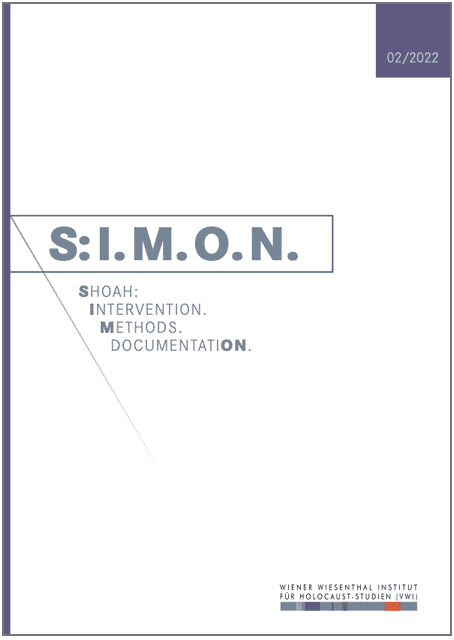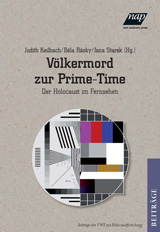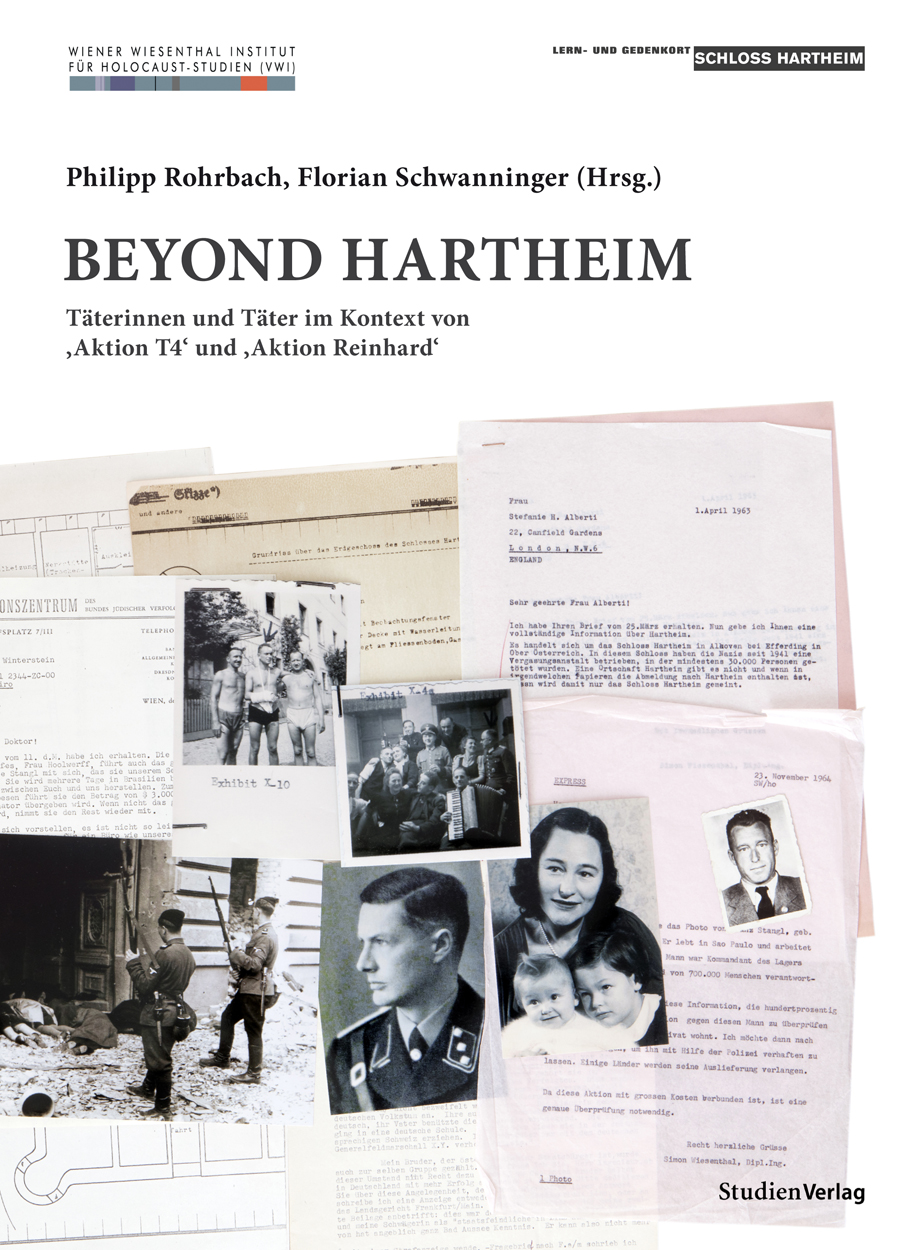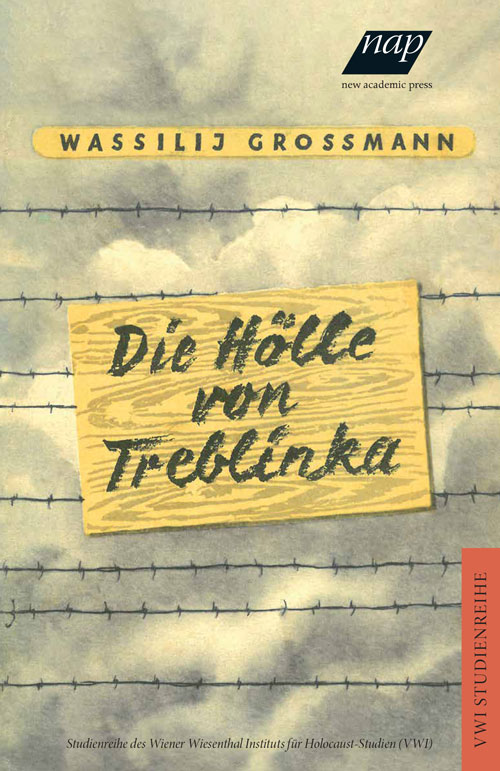News – Veranstaltungen – Calls
| 02. Mai 2024 18:30 Simon Wiesenthal LectureEdyta Gawron: Never Too Late to Remember, Never Too Late for Justice! Holocaust Research and Commemoration in Contemporary PolandIn 1994, Simon Wiesenthal received a doctorate honoris causa from the Jagiellonian University in Krakow for his lifelong quest for justice – half a century after he had been, for a short time, prisoner of the local Nazi Concentration Camp (KL) Plaszow. The 1990s were the decade when t...Weiterlesen... |
| 07. Mai 2024 00:00 - 04. Juni 2024 00:00 WorkshopDealing with Antisemitism in the Past and Present. Scientific Organisations and the State of Research in AustriaThis series of talks, presented by antisemitism experts from different organisations that research antisemitism using a variety of academic approaches, aims to provide a snapshot of historical evolutions, current events, prevalent perceptions and declared (and undeclared) attitudes. I...Weiterlesen... |
| 14. Mai 2024 08:45 - 16. Mai 2024 16:30 TagungQuantifying the Holocaust. Classifying, Counting, Modeling: What Contribution to Holocaust History? About the conference: https://quantiholocaust.sciencesconf.org/ Programme timed on the basis of 15-minute presentations + 15-minute discussions; short breaks and lunches Day 1 Tuesday, 14 May 2024Centre Malher (9 rue Malher 75004 Paris/amphi Dupuis) From 8.45 am: Welcome9.30 am...Weiterlesen... |
| 24. Mai 2024 18:00 InterventionLange Nacht der Forschung 20242024 öffnet das Wiener Wiesenthal Institut für Holocaust-Studien (VWI) in der Langen Nacht der Forschung wieder seine Tore und lädt Interessierte in seine Räumlichkeiten am Rabensteig 3 ein. Im Rahmen von Vorträgen, Podiumsdiskussionen und Präsentationen bieten VWI-Team und Gäste Einb...Weiterlesen... |
| 04. Juni 2024 13:00 VWI invites/goes to...Workshop: Social History of the Shoah. Everyday Life, Space and Time VWI invites the Department of Contemporary History, University of Vienna 13:00Hannah Riedler (VWI Junior Fellow)Between Deportation, Forced Labour and Germanisation. The Umwandererzentralstelle in Occupied Poland 1939–1941Commented by Kerstin von Lingen 13:40...Weiterlesen... |
| 13. Juni 2024 18:30 Simon Wiesenthal LectureJack Fairweather: The Trials of Fritz Bauer. How Life as a Gay Jewish Socialist under the Nazis Shaped His Quest for JusticeFritz Bauer’s daring mission to bring Adolf Eichmann and the perpetrators of Auschwitz to justice forced Germany and the world to pay attention to the crimes of the Holocaust. Bauer’s moral courage in speaking out in a society that had not yet come to terms with its past, which he him...Weiterlesen... |
Galyna Fesenko
Fellows from Ukraine (12/2023-03/2024)
Holocaust Memory in Ukraine: Discourses of the Urban Memorial Landscapes
The project focuses on examining the key memorial transformations that took place on the sites of the Holocaust in Ukrainian cities from the end of the Nazi occupation to the present, as well as to analyse the extent to which these territories have become places of Holocaust memory. The project aims to describe the mechanisms of embedding this memory into the symbolic space cities (Dnipro, Kharkiv, Odesa). These cities were chosen for the study because they are the most sensitive to Holocaust memorial culture and public Holocaust museums function here. This is remarkable, since there is still no national Holocaust Museum in Ukraine. The project justifies the need to apply cultural analysis to each place of memory.
Galyna Fesenko, PD, Dr.Sc., Professor at the Department of History and Cultural Science at O.M. Beketov National University of Urban Economy in Kharkiv (Ukraine). A specialist in cultural urbanism, memory politics, gender studies, she has published extensively on these topics with a comparative focus on Ukraine and East-Central Europe. In recent years her research interests include genocide, searching for relevant approaches to the Holocaust memorial landscape (at the Institute of Culture Studies and Theatre History of the Austrian Academy of Sciences).
Roman Shliakhtych
Fellows from Ukraine (03/2024-05/2024)
Involvement of Local Police in the Holocaust on the Territory of the Southeast of Ukraine (On the Example of Dnipropetrovsk, Zaporizhia and Kherson Regions)
 Research of the participation of local policemen in the Holocaust has been neglected by Ukrainian historians for a long time. It was assumed that only the Nazis committed crimes in the occupied territories. These crimes were indeed initiated by the Nazis, but their scale would have been much smaller without the participation of local perpetrators. This project involves researching the participation of local policemen in the Holocaust. The project methodology is a history from below. It is planned to show the activities of the local auxiliary police through the eyes of the police, as well as of eyewitnesses and people who managed to escape. Such an approach will reveal behavior patterns of criminals, their victims, and outside observers. It will also make it possible to understand the motives of criminals, as well as to reconstruct the crimes themselves. It is also planned to involve the methods of social psychology for a more complete reconstruction of the functioning of the collective of local police officers and the relations within such a collective.
Research of the participation of local policemen in the Holocaust has been neglected by Ukrainian historians for a long time. It was assumed that only the Nazis committed crimes in the occupied territories. These crimes were indeed initiated by the Nazis, but their scale would have been much smaller without the participation of local perpetrators. This project involves researching the participation of local policemen in the Holocaust. The project methodology is a history from below. It is planned to show the activities of the local auxiliary police through the eyes of the police, as well as of eyewitnesses and people who managed to escape. Such an approach will reveal behavior patterns of criminals, their victims, and outside observers. It will also make it possible to understand the motives of criminals, as well as to reconstruct the crimes themselves. It is also planned to involve the methods of social psychology for a more complete reconstruction of the functioning of the collective of local police officers and the relations within such a collective.
Roman Shliakhtych was born in Kryvyi Rih, Ukraine. In 2006 he finished his MA as Teacher of History and Law at the Kryvyi Rih State Pedagogical University. In 2011 he received his Candidate degree in History (equivalent to a Ph.D) at the National University of "Kyiv-Mohyla Academy", Ukraine. Since 2021 he is a docent at the Department of Social-Humanitarian Science at the State University of Economy and Technology, Kryvyi Rih. Shliakhtych is the author of two monographs and published more than 40 studies in professional publications. Since 2014, he has been researching the participation of local policemen in the Holocaust on the territory of the Reichskommissariat "Ukraine". During this time, he was a fellow at leading Holocaust research centers such as Yad Vashem, the United States Holocaust Memorial Museum, Yahad-In Unum, etc. Since 2023 he is a doctoral student of the Dnipro National University named after O. Honchara
Andrij Kudrjatschenko
Fellows from Ukraine (10/2022-12/2022)
Holocaust: ukrainischer Diskurs, europäischer Kontext
 Die wichtigsten und moralisch einflussreichsten Repräsentant:innen des Holocaustgedenken auf Ebene der Nationalstaaten waren anfangs Deutschland, Israel und die USA. Doch der Zivilisationsbruch war und ist für alle Demokratien Europas von hoher Relevanz. Der Holocaust hat in der ukrainischen Wissenschaft einen anderen Stellenwert als in Westeuropa. Schließlich stellt der Holocaust für den Westen den Eckpfeiler der Erinnerung an den Zweiten Weltkrieg dar und gilt als ausdrucksstärkstes Symbol für die Verbrechen des Nationalsozialismus sowie zentrales historisches Ereignis des 20. Jahrhunderts, das zu einer tiefgreifenden Neubetrachtung der europäischen Geschichte seit der Aufklärung geführt hat.
Die wichtigsten und moralisch einflussreichsten Repräsentant:innen des Holocaustgedenken auf Ebene der Nationalstaaten waren anfangs Deutschland, Israel und die USA. Doch der Zivilisationsbruch war und ist für alle Demokratien Europas von hoher Relevanz. Der Holocaust hat in der ukrainischen Wissenschaft einen anderen Stellenwert als in Westeuropa. Schließlich stellt der Holocaust für den Westen den Eckpfeiler der Erinnerung an den Zweiten Weltkrieg dar und gilt als ausdrucksstärkstes Symbol für die Verbrechen des Nationalsozialismus sowie zentrales historisches Ereignis des 20. Jahrhunderts, das zu einer tiefgreifenden Neubetrachtung der europäischen Geschichte seit der Aufklärung geführt hat.
Auch für die Betrachtung der ukrainischen Geschichte spielt der Holocaust eine wichtige und aktuelle Rolle. Gleichzeitig sind es ukrainische Realitäten, die oftmals die Betrachtung dieses Themas verkomplizieren. Ziel des vorliegenden Projekts ist es, die ukrainischen Spezifika dieser Betrachtungsweise im Vergleich mit der westeuropäischen Darstellung herauszuarbeiten.
Andrij Kudrjatschenko, Professor für Zeitgeschichte, Direktor des Instituts für Weltgeschichte der Nationalen Akademie der Wissenschaften der Ukraine. Diplomat, Gesandter der Botschaft der Ukraine in der Bundesrepublik Deutschland (1998-2000 in Bonn und Berlin), Korrespondierendes Mitglied der Nationalen Akademie der Wissenschaften der Ukraine (seit 2018). Vorsitzender der Fachzeitschriftsredaktion Probleme der Weltgeschichte, Mitglied mehrerer Redaktionen von Zeitschriften in der Ukraine und im Ausland. DAAD Stipendiat Göttinger Arbeitskreis, Stadtbibliothek Berlin (November – Dezember 2008).
Stipendiat des United States Holocaust Memorial Museums (Juli 2020, Juli 2021 Washington, DC). Stipendiat des Instituts für Zeitgeschichte (Oktober-November 2021). Seine Forschungsfelder sind Holocaust, Hungersnot in der Ukraine, ukrainisch-deutsche Beziehungen Mitte des 20. bis Anfang des 21. Jahrhunderts, das historische Gedächtnis der Ukrainer:innen. Seine aktuellen Forschungen konzentrieren sich auf ukrainischen Diskurs und europäischen Kontext des Holocaust.









